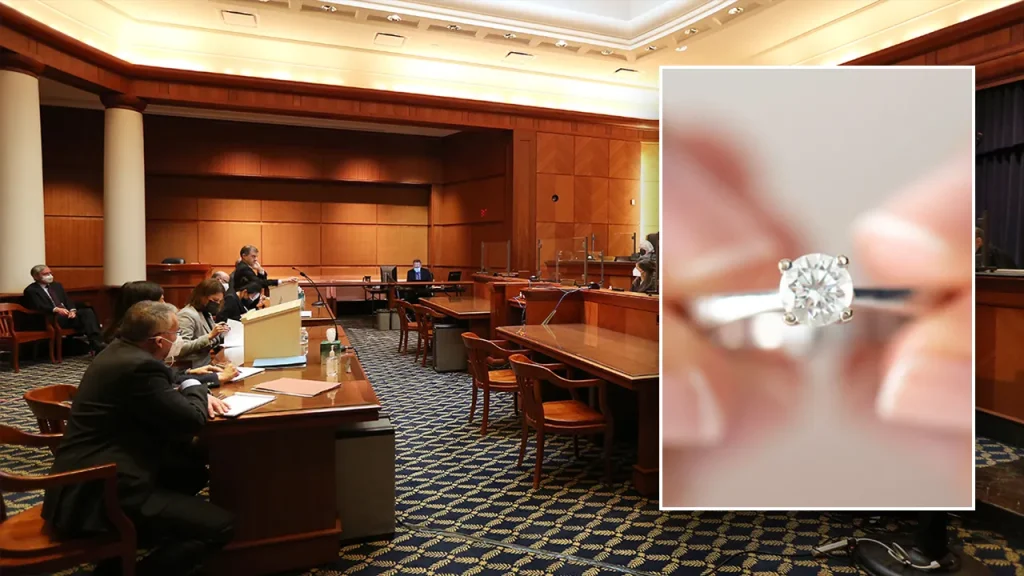The highest court in Massachusetts has recently decided the fate of a $70,000 engagement ring that was at the center of a dispute between a former couple. The court overruled a long-standing state rule that determined ownership of engagement rings based on fault in the breakup of a relationship. Instead, the court ruled that the ring must be returned to the person who first purchased it. The case involved a couple, Bruce Johnson and Caroline Settino, who began dating in 2016. Johnson allegedly spent large sums of money on gifts and vacations for Settino during their relationship.
In August 2017, Johnson proposed to Settino with a $70,000 diamond engagement ring after asking her father for her hand in marriage. However, their relationship began to deteriorate, with Johnson claiming that Settino was critical and unsupportive, not accompanying him to cancer treatments and engaging in suspicious behavior. After finding text messages on Settino’s phone from an unidentified man, Johnson ended the engagement. The ownership of the expensive engagement ring became a point of contention between the former couple, leading to a legal battle.
The case eventually made its way to the Massachusetts Supreme Judicial Court, which ruled that Johnson should retain ownership of the engagement ring. The court decided to retire the decades-old concept of assigning fault in breakup situations to determine ownership of engagement rings. Instead, the court adopted the modern trend followed by the majority of jurisdictions, which states that in cases where an engagement is broken off and a wedding does not occur, the engagement ring should be returned to the person who gave it regardless of fault.
Bruce Johnson’s lawyer, Stephanie Taverna Siden, expressed her satisfaction with the court’s decision, stating that it was well-reasoned and fair. On the other hand, one of Settino’s lawyers, Nicholas Rosenberg, expressed disappointment with the outcome but acknowledged the court’s decision to align with the majority rule of other states. Rosenberg argued that the idea of an engagement ring as a conditional gift based on fault is outdated and should no longer be a legal loophole.
The court’s ruling marks a significant shift in Massachusetts law regarding the ownership of engagement rings in cases of broken engagements. By rejecting the concept of fault in determining ownership rights over engagement rings, the court has modernized its approach to addressing disputes between former couples. The decision highlights the evolving legal landscape surrounding engagements and the importance of clear guidelines for resolving disputes over valuable assets like engagement rings.













